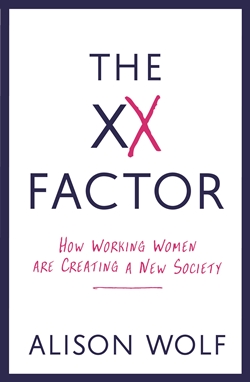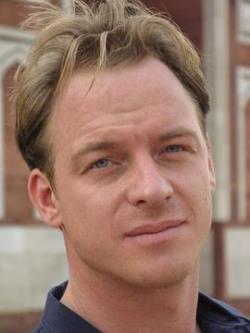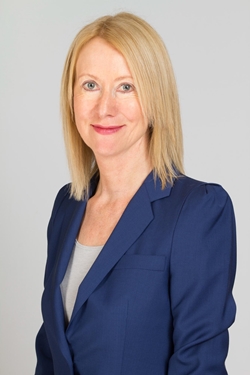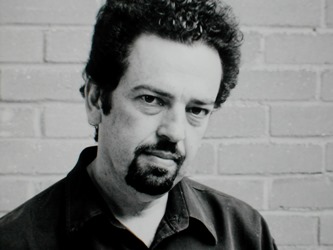Posted on March 26, 2014 by The Orwell Prize -

Why do democracies keep lurching from success to failure? The current financial crisis is just the latest example of how things continue to go wrong, just when it looked like they were going right. In this wide-ranging, original, and compelling book, David Runciman tells the story of modern democracy through the history of moments of crisis, from the First World War to the economic crash of 2008. A global history with a special focus on the United States, The Confidence Trap examines how democracy survived threats ranging from the Great Depression to the Cuban missile crisis, and from Watergate to the collapse of Lehman Brothers. It also looks at the confusion and uncertainty created by unexpected victories, from the defeat of German autocracy in 1918 to the defeat of communism in 1989. Throughout, the book pays close attention to the politicians and thinkers who grappled with these crises: from Woodrow Wilson, Nehru, and Adenauer to Fukuyama and Obama. The Confidence Trap shows that democracies are good at recovering from emergencies but bad at avoiding them. The lesson democracies tend to learn from their mistakes is that they can survive them–and that no crisis is as bad as it seems. Breeding complacency rather than wisdom, crises lead to the dangerous belief that democracies can muddle through anything–a confidence trap that may lead to a crisis that is just too big to escape, if it hasn’t already. The most serious challenges confronting democracy today are debt, the war on terror, the rise of China, and climate change. If democracy is to survive them, it must figure out a way to break the confidence trap. Taken from Princeton University Press
Posted on March 26, 2014 by The Orwell Prize -

Gideon Rachman became chief foreign affairs columnist for the Financial Times in July 2006. He joined the FT after a 15-year career at The Economist, which included spells as a foreign correspondent in Brussels, Washington and Bangkok. He also edited The Economist’s business and Asia sections. His particular interests include American foreign policy, the European Union and globalisation. He is the author of Zero-Sum World, published by Atlantic Books in November 2010. He was shortlisted for the Orwell Prize for journalism in 2011.
Submitted articles
America cannot live so carelessly forever – Financial times, 07/10/2013 Staying out of Syria is the bolder call for Obama – Financial Times, 13/05/2013 The Chinese dream is Smothered by Toxic Fog – Financial Times, 06/05/2013 Germany is a vegetarian in a world full of carnivores – Financial Times, 09/09/2013 Why I switched sides in the UK’s civil war over Europe – Financial Times, 20/05/2013 The Shadow of 1914 falls over the Pacific – Financial Times, 06/02/2013 Gideon Rachman on Twitter
Posted on March 26, 2014 by The Orwell Prize -

Jonathan Freedland is a columnist at the Guardian. He also regularly writes for the New York Review of Books and the Jewish Chronicle. He also presents ‘The Long View’ on Radio 4, and writes novels under the pseudonym Sam Bourne. He was shortlisted for the Orwell Prize for journalism in 2007.
Submitted Articles
Marking Margaret Thatcher’s passing: a battle over Britain’s present and future – The Guardian, 09/04/2013 Antisemitism doesn’t always come doing a Hitler salute – The Guardian, 04/10/2013 Why even atheists should be praying for Pope Francis – The Guardian, 15/11/2013 Woolwich attack: When killers strike, should we listen to what they say? – The Guardian, 24/05/2013 In Britain today rules, like taxes, are for the little people – The Guardian, 12/07/2013 The Unknown Maggie – The New York Review of Books, 26/09/2013
Posted on March 26, 2014 by The Orwell Prize -

Moscow 1945. As Stalin and his courtiers celebrate victory over Hitler, shots ring out. On a nearby bridge, a teenage boy and girl lie dead. But this is no ordinary tragedy and these are no ordinary teenagers, but the children of Russia’s most important leaders who attend the most exclusive school in Moscow. Is it murder? A suicide pact? Or a conspiracy against the state? Directed by Stalin himself, an investigation begins as children are arrested and forced to testify against their friends – and their parents. This terrifying witch-hunt soon unveils illicit love affairs and family secrets in a hidden world where the smallest mistakes will be punished with death. Taken from Random House
Posted on March 26, 2014 by The Orwell Prize -

Suzanne Moore is a columnist for the Guardian. She has previously written for the Daily Mail, the Independent, and the New Statesman.
Submitted articles
In the digital economy, we’ll soon all be working for free – and I refuse – The Guardian, 15/01/2014 The worship of children brings only misery – The Guardian, 23/10/2013 Grayson Perry’s tapestries, weaving class and taste – The Guardian, 08/06/2013 Don’t vilify Russell Brand – he’s right to demand the impossible – The Guardian, 06/11/2013 It’s hard not to be angry when men won’t discuss rape and abuse – The Guardian, 15/01/2013 Boris Johnson’s philosophy isn’t just elitist – it’s sinister – The Guardian, 28/11/2013 Suzanne Moore on twitter
Posted on March 26, 2014 by The Orwell Prize -
Posted on March 26, 2014 by The Orwell Prize -

For most of history, being female defined the limits of a woman’s achievements. But now, women are successful careerists equal to men. In Norway, women legally must constitute a third of all boards; in America, women have gone from 3% of practising lawyers in 1970 to 40% today, and over half of all law students. These changes are revolutionary – but not universal: the ‘sisterhood’ of working women is deeply divided. Making enormous strides in the workplace are young, educated, full-time professionals who have put children on hold. But for a second group of women this is unattainable: instead, they work part-time, earn less, are concentrated in heavily feminised occupations like cleaning and gain income and self-worth from having children young. As these two groups move ever further apart, shared gender no longer automatically creates interests in common with other women. The XX Factor lifts the curtain on these social, cultural and economic schisms. Taken from Profile
Posted on March 26, 2014 by The Orwell Prize -

Anthony Loyd is a war correspondent who writes regularly for The Times and contributes to other publications, including Standpoint. He has written two books about his experiences in war zones in Chechnya, Yugoslavia, Sierra Leone, Afghanistan and Iraq: My War Gone by, I Miss it So and Another Bloody Love Letter. He was shortlisted for the Orwell Prize for journalism in 2010.
Submitted Articles
Posted on March 26, 2014 by The Orwell Prize -

Matthew Engel is a columnist at the Financial Times. He previously worked for the Guardian for 25 years, and was the News International Visiting Professor of Media at the University of Oxford for 2011.
Submitted Articles
A conclusion of unThatcherite pageantry – Financial Times, 16/04/2013 British Institutions: the City of London – Financial Times, 22/11/2013 Citizenship tests: Why we need them – Financial Times, 16/03/2013 British Institutions: The Supreme Court – Financial Times, 19/04/2013
Posted on March 26, 2014 by The Orwell Prize -

To follow.
Posted on March 26, 2014 by The Orwell Prize -

As political change sweeps the streets and squares, parliaments and presidential palaces of the Arab world, Shereen El Feki has been looking at upheaval a little closer to home – in the sexual lives of men and women in Egypt and across the region. The result is an informative, insightful and engaging account of a highly sensitive, and still largely secret, aspect of Arab society. Sex is entwined in religion and tradition, politics and economics, gender and generations, so it makes the perfect lens for examining the region’s complex social landscape. From pregnant virgins to desperate housewives, from fearless activists to religious firebrands, Sex and the Citadel takes a fresh look at the sexual history of the Arab region, and brings new voices to the debate over its future. This is no peep show or academic treatise. Sex and the Citadel is a highly personal, often humorous, account of one woman’s journey to better understand Arab society at its most intimate, and in the process, better understand her own origins. Rich with five years of groundbreaking research from Egypt to Saudi Arabia, Tunisia to Qatar, Sex and the Citadelgives us unique and timely insight into everyday lives in a part of the world that is changing in front of our very eyes. Taken from Random House
Posted on March 26, 2014 by The Orwell Prize -

Paul Wood is the World Affairs Correspondent for the BBC. He was previously the defence and Middle East correspondent.
Submitted articles
In Syria, Facing Danger From All Sides – Committee to Protect Journalists annual review, 01/02/2013 Face-to-face with Abu Sakkar, Syria’s ‘heart-eating cannibal’ – BBC Online, 05/07/2013 Syria: The Nusra Front – BBC Online, 17/01/2013 Sharia spreads in Syria – BBC Online, 02/07/2013 Syria: a corrupted revolution – The Spectator, 04/05/2013 Assad now has the enemy he wants – The Spectator, 05/10/2013
Posted on March 26, 2014 by The Orwell Prize -

James Astill is Political editor and Bagehot columnist of the Economist. He has previously worked as International Security editor, South Asia correspondent, and Energy and Environment editor for the Economist.
Articles submitted
Bagehot: The Weirdness of Eastleigh – The Economist, 23/02/2013 Bagehot: The Parable of the Clyde – The Economist, 31/08/2013 Bagehot: The New Islamophobes – The Economist, 19/10/2013 Bagehot: More Tough, Less Love – The Economist, 02/11/2013 Bagehot: Top of the Class – The Economist, 07/12/2013 Cockney Funerals: Buried Like Kings – The Economist, 21/12/2013
Posted on March 26, 2014 by The Orwell Prize -

On 11 September 2001, in a café in London, Ahmed Errachidi watched as the twin towers collapsed. He was appalled by the loss of innocent life. But he couldn’t possibly have predicted how much of his own life he too would lose because of that day. In a series of terrible events, Ahmed was sold by the Pakistanis to the Americans in the diplomatic lounge at Islamabad airport and spent five and a half years in Guantanamo. There, he was beaten, tortured, humiliated, very nearly destroyed. But Ahmed did not give in. This very ordinary, Moroccan-born London chef became a leader of men. Known by the authorities as The General, he devised protests and resistance by any means possible. As a result, he spent most of his time in solitary confinement. But then, after all those years, Ahmed was freed, his innocence admitted. This is Ahmed’s story. It will make you rethink what it means to be in the wrong place at the wrong time. It will also make you look anew at courage, survival, justice and the War on Terror. Taken from Random House
Posted on March 26, 2014 by The Orwell Prize -

Mary Riddell is a columnist for Daily Telegraph. A former deputy editor of Today, she has written for a number of national newspapers, including The Observer, on social, constitutional and foreign affairs, as well as covering criminal justice and Westminster politics. Her writing awards include Interviewer of the Year in the British Press Awards and a commendation in the feature-writing category. She has twice been named legal journalist of the year by the Bar Council and has previously been shortlisted for the Orwell Prize for Journalism (2008).
Submitted articles
Titanium Ed And The Iron Lady – Daily Telegaph, 16/04/2013 Is Ed Miliband caught in a trap on Syria? – Daily Telegraph, 18/06/2013 The NHS is not a creaking relic – Daily Telegraph, 16/07/2013 The housing crisis needs new towns – Daily Telegraph, 15/10/2013 The silent majority and immigration – Daily Telegraph, 12/10/2013 What Obama’s deal with Iran can teach us – Daily Telegraph, 26/11/2013
Posted on March 26, 2014 by The Orwell Prize -

Ghaith Abdul-Ahad is an Iraqi journalist, who has reported from Iraq, Afghanistan, Syria, and Libya. He is a Guardian foreign correspondent, and writes regularly for the London Review of Books. Articles submitted How to Start a Battalion (in Five Easy Lessons) – London Review of Books, 21/02/2013 Diary – London Review of Books, 08/08/2013 Syria’s oilfields create surreal battle lines amid chaos and tribal loyalties – the Guardian, 25/06/2013 Syria’s al-Nusra Front – ruthless, organised and taking control – the Guardian, 10/07/2013 ‘Syria is not a revolution any more – this is civil war’ – the Guardian, 18/11/2013 Ghaith Abdul-Ahad on twitter
Posted on March 26, 2014 by The Orwell Prize -

Kith is a passionate examination of what it means to be a child, by Jay Griffiths, the award-winning author of Wild. While travelling the world in order to write her award-winning book Wild, Jay Griffiths became increasingly aware of the huge differences in how childhood is experienced in various cultures. One central riddle, in particular, captured her imagination: Why are so many children in Euro-American cultures unhappy — and why is it that children in many traditional cultures seem happier? In Kith, Jay Griffiths explores these questions and many more. Moving from communities in West Papua and the Arctic to the ostracised young people of contemporary Britain, she asks why we have enclosed our children in a consumerist cornucopia but denied them the freedoms of space, time and deep play. She uses history, philosophy, language and literature to illustrate children’s affinity for the natural world and the essential quest element of childhood. Kith is Jay Griffiths’ impassioned, illuminating analysis of a universal rite of passage. In its urgent defence of the rights and needs of every child, it is a journey into the heart of human experience. Taken from Penguin
Posted on March 26, 2014 by The Orwell Prize -

Peter Oborne is a journalist and author who joined the Telegraph in 2010 after writing for some years for the Daily Mail. He has also written for The Spectator,Prospect, The Observer, The Independent, the Evening Standard and the Sunday Mirror. His books include The Rise of Political Lying and The Triumph of the Political Class, and biographies of Alastair Campbell and Basil D’Oliveira, the latter being named the William Hill Sports Book of the Year 2004. He was shortlisted for the Orwell Prize in 2009.
Submitted articles
George Osborne can’t claim credit for IDS’s virtuous reform – The Telegraph, 07/04/2013 This is a state funeral, and that’s a mistake – The Telegraph, 11/04/2013 Is Interpol fighting for truth and justice, or helping the villains? – The Telegraph, 23/05/2013 Conservative radicalism can go too far – The Telegraph, 9/06/2013 Britain betrays its values in its response to the Egyptian coup – The Telegraph, 11/07/2013 Ed Miliband is proving himself to be a brave and adroit leader – The Telegraph, 19/09/2013

















